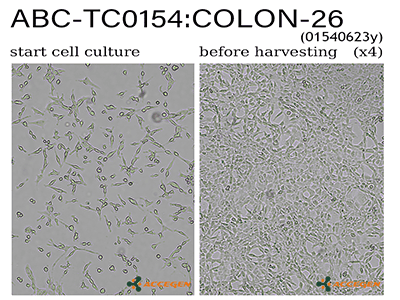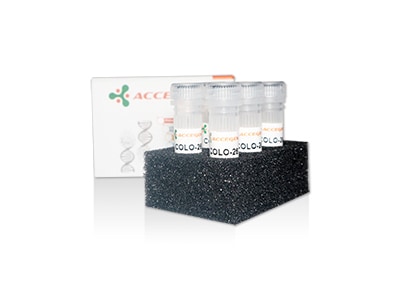Featured Products
Explore Products
- In-Stock Tumor Cell Lines
- Human Orbital Fibroblasts
- Human Microglia
- Human Pulmonary Alveolar Epithelial Cells
- Human Colonic Fibroblasts
- Human Type II Alveolar Epithelial Cells
- Human Valvular Interstitial Cells
- Human Thyroid Epithelial Cells
- C57BL/6 Mouse Dermal Fibroblasts
- Human Alveolar Macrophages
- Human Dermal Fibroblasts, Adult
- Human Lung Fibroblasts, Adult
- Human Retinal Muller Cells
- Human Articular Chondrocytes
- Human Retinal Pigment Epithelial Cells
- Human Pancreatic Islets of Langerhans Cells
- Human Kidney Podocyte Cells
- Human Renal Proximal Tubule Cells



 Colon-26 is a mouse colon adenocarcinoma cell line derived from the tumor tissue of Balb/c mice bearing Colon-26 carcinoma, induced by single rectal application of N-Nitroso-N-Methyl-urethan (NMU). Colon-26 should be cultured in RPMI1640 supplemented with 10% FBS, and the doubling time of Colon-26 is 15-20 hours.
Colon-26 is a mouse colon adenocarcinoma cell line derived from the tumor tissue of Balb/c mice bearing Colon-26 carcinoma, induced by single rectal application of N-Nitroso-N-Methyl-urethan (NMU). Colon-26 should be cultured in RPMI1640 supplemented with 10% FBS, and the doubling time of Colon-26 is 15-20 hours.
